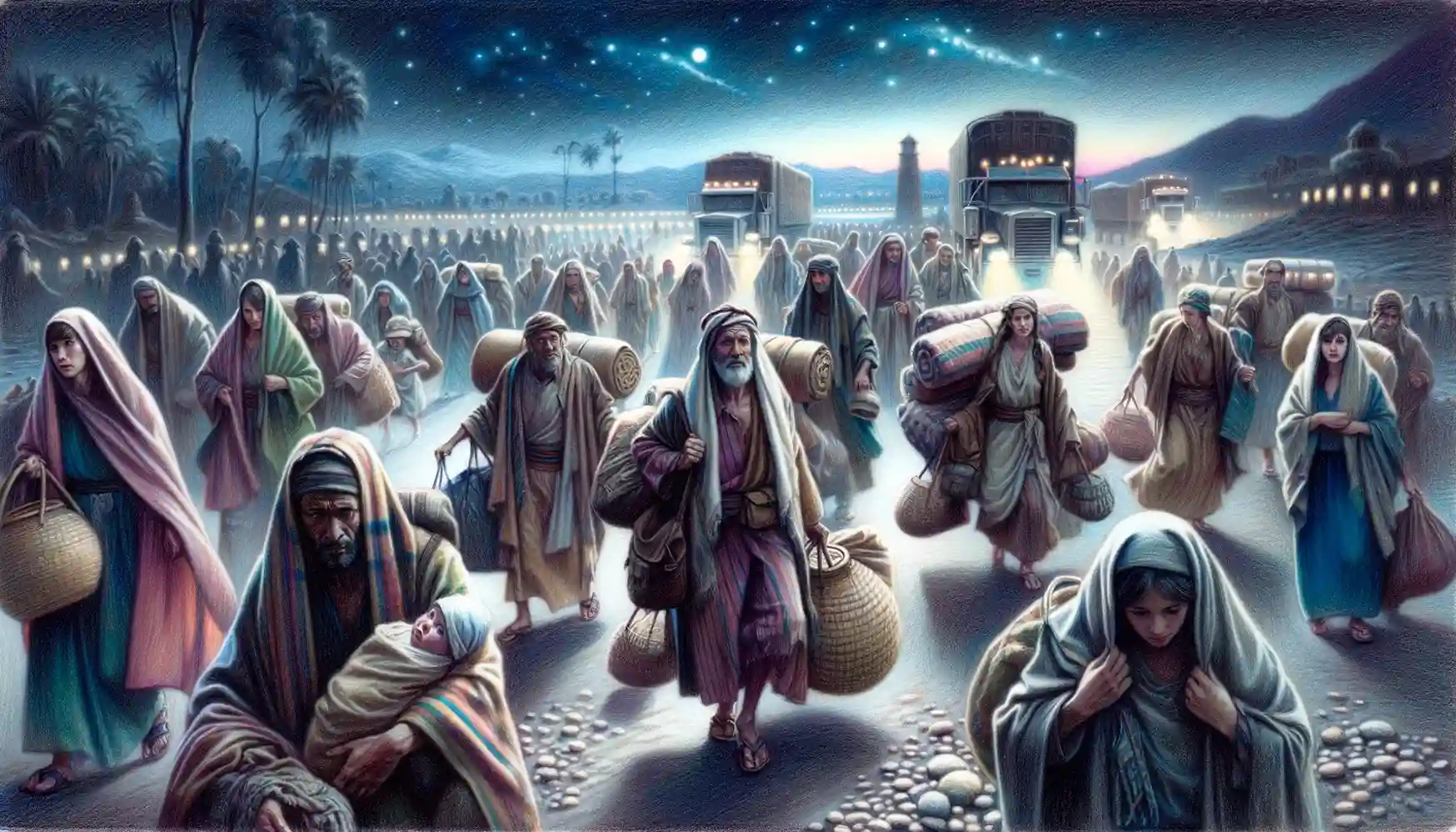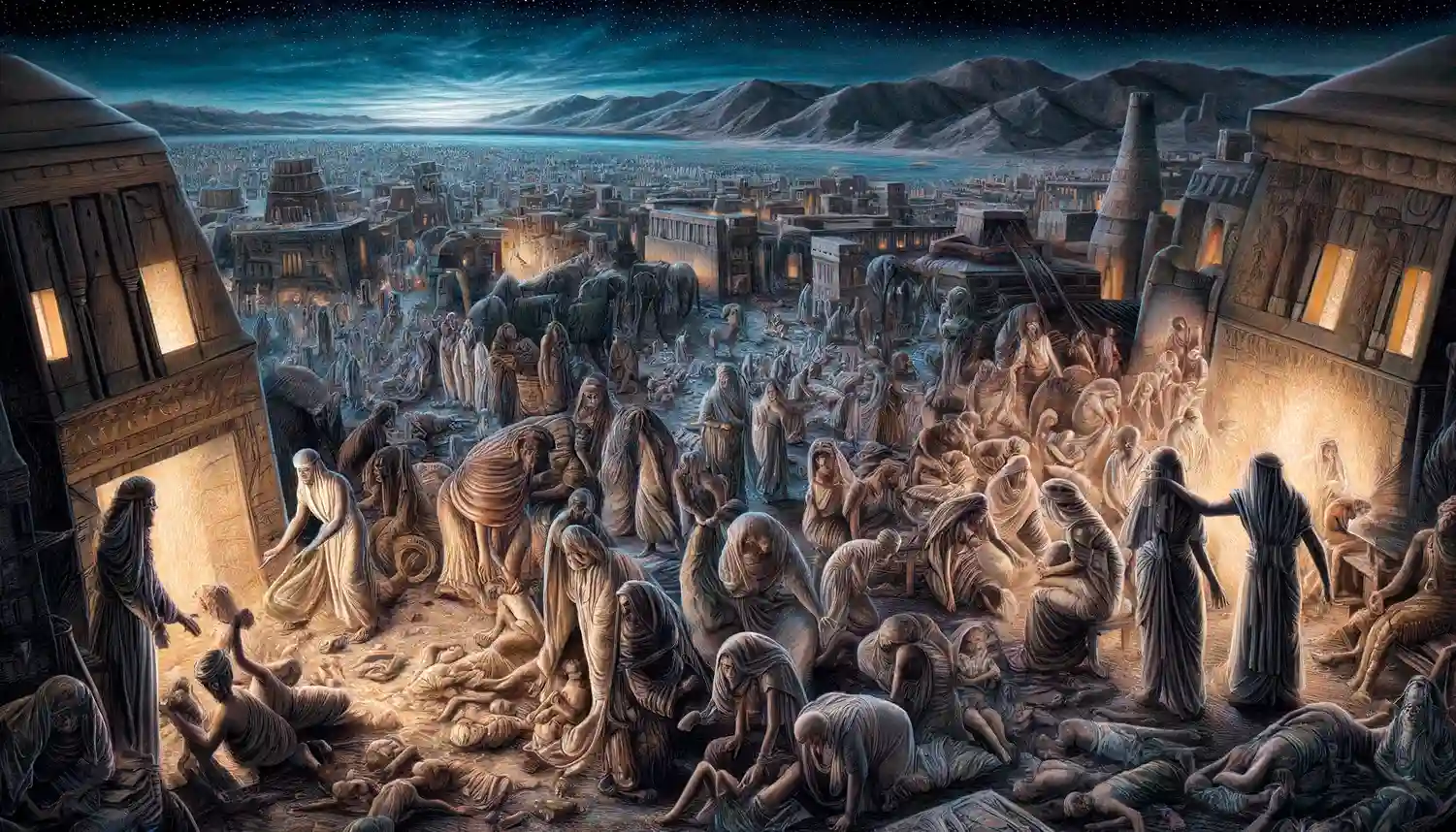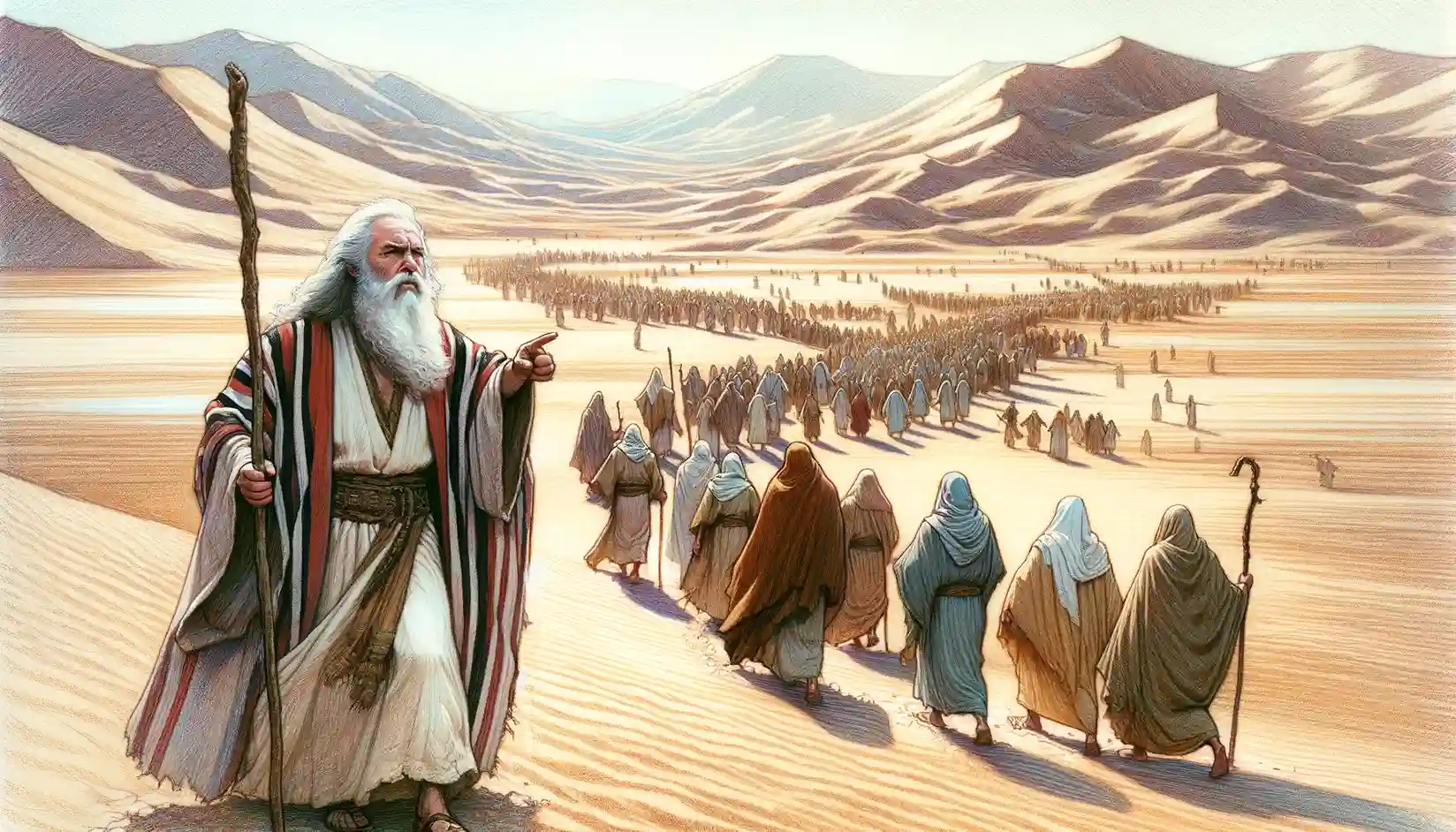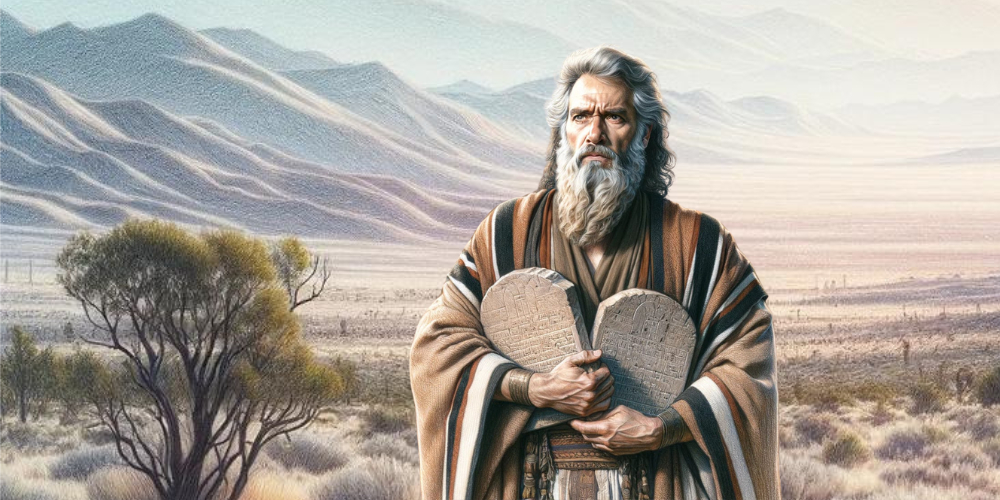In Exodus 12:31-42, the narrative details the momentous night of the Israelites’ departure from Egypt, marking their liberation from slavery after 430 years, as Pharaoh, compelled by the devastating plagues, urgently commands Moses and Aaron to lead their people out. This passage highlights the beginning of the Exodus, the institution of the Feast of Unleavened Bread, and the fulfillment of God’s promises, capturing a pivotal turning point where the Israelites leave with the riches of the Egyptians, signifying their transition from slavery to freedom under divine guidance.
The death of the Egyptian firstborns, as narrated in Exodus 12:29-30, represents a profound divine intervention that marked the climactic and decisive act leading to the liberation of the Israelites from Egyptian bondage, embodying themes of divine justice, retribution, and the fulfillment of God’s covenant.
The Book of Exodus chronicles the deliverance of the Israelites from slavery in Egypt, their covenant relationship with God at Mount Sinai, and their journey towards the Promised Land, emphasizing God’s faithfulness and the formation of a holy nation under His laws.
Moses, an Israelite leader and Hebrew prophet, is renowned for his role in the Exodus, receiving the Ten Commandments, leading the Israelites through the wilderness, and his encounters with God, including the burning bush and parting the Red Sea, culminating in his view of the Promised Land from Mount Nebo.




